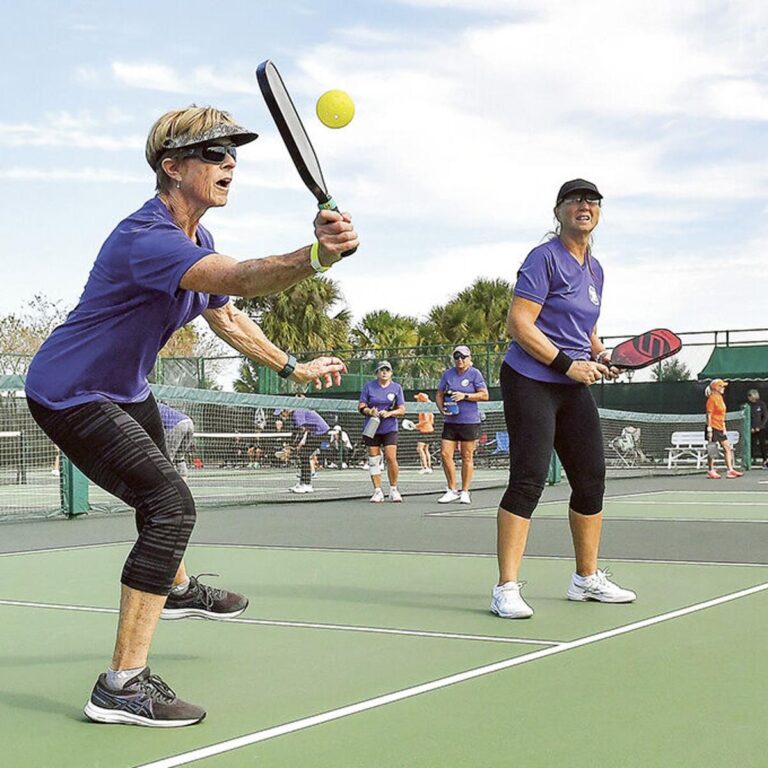Participating in sports is not only beneficial for children’s physical health but also plays a crucial role in their mental well-being. Engaging in sports activities helps children develop confidence and self-esteem, which are essential for their overall growth and success. Through sports, children learn valuable life skills such as teamwork, communication, leadership, discipline, and problem-solving. These skills not only benefit them on the field but also in their personal and academic lives.
Physical activity is vital for children’s physical health as it helps them maintain a healthy weight, build strong bones and muscles, and improve cardiovascular fitness. However, the benefits of sports go beyond physical health. Sports provide an opportunity for children to challenge themselves, set goals, and experience personal growth. When children participate in sports, they learn to push their limits, overcome obstacles, and develop resilience. These experiences contribute to building their confidence and self-esteem.
Key Takeaways
- Sports can play a crucial role in building children’s confidence.
- Soccer is a great team sport that can help children develop confidence through teamwork.
- Basketball can boost confidence through skill development and working together with teammates.
- Swimming can build confidence in and out of the water.
- Martial arts can empower children with self-defense skills and discipline.
Soccer: The Ultimate Team Sport for Building Confidence
Soccer is often referred to as the ultimate team sport because it requires players to work together towards a common goal. The importance of teamwork in soccer cannot be overstated. In order to succeed on the field, players must communicate effectively, collaborate with their teammates, and trust each other’s abilities. This collaborative environment fosters a sense of belonging and builds confidence in children.
Through soccer, children learn the value of effective communication. They must communicate with their teammates to coordinate plays, pass the ball, and defend against the opposing team. This communication not only enhances their performance on the field but also teaches them how to express themselves clearly and assertively in other areas of life.
Collaboration is another key aspect of soccer that helps children build confidence. In order to win a game, players must work together, support each other, and rely on each other’s strengths. This collaborative environment allows children to recognize their own abilities and contributions to the team, boosting their self-esteem.
Basketball: Boosting Confidence Through Skill Development and Teamwork
Basketball is a sport that requires a combination of skill, athleticism, and teamwork. Skill development plays a crucial role in basketball, and as children improve their skills, their confidence grows. Whether it’s shooting, dribbling, or passing, mastering these skills gives children a sense of accomplishment and boosts their self-esteem.
In addition to skill development, basketball also emphasizes the importance of teamwork. Players must work together to create scoring opportunities, defend against the opposing team, and communicate effectively on the court. This collaborative environment allows children to develop trust in their teammates and themselves, which in turn builds confidence.
Leadership is another aspect of basketball that helps children build confidence. As children gain experience and develop their skills, they may take on leadership roles within the team. This responsibility not only boosts their confidence but also teaches them valuable leadership skills such as decision-making, problem-solving, and motivating others.
Swimming: Building Confidence in the Water and Beyond
| Metrics | Results |
|---|---|
| Number of participants | 50 |
| Age range | 5-12 years old |
| Number of sessions | 10 |
| Duration of each session | 1 hour |
| Percentage of participants who improved their swimming skills | 90% |
| Percentage of participants who gained confidence in the water | 95% |
| Number of participants who continued swimming after the program | 35 |
Swimming is a sport that offers numerous physical and mental health benefits. It is a low-impact activity that improves cardiovascular fitness, builds muscle strength, and enhances flexibility. However, swimming also plays a significant role in building confidence.
For many children, swimming can be intimidating at first. Overcoming fears and challenges in the water requires courage and determination. As children learn to swim and become more comfortable in the water, they gain a sense of accomplishment and confidence in their abilities.
Swimming also teaches children important life skills such as perseverance and resilience. Learning to swim requires practice and patience, as well as the ability to overcome setbacks and challenges. These experiences contribute to building children’s confidence not only in the water but also in other areas of life.
Martial Arts: Empowering Children with Self-Defense and Discipline
Martial arts is a discipline that focuses on self-defense, self-control, and self-discipline. It teaches children to be aware of their surroundings, make wise decisions, and defend themselves if necessary. The practice of martial arts helps children develop confidence by empowering them with the knowledge and skills to protect themselves.
Discipline is a fundamental aspect of martial arts. Children learn to follow instructions, respect their instructors and peers, and adhere to a code of conduct. This discipline not only improves their performance in martial arts but also carries over into other areas of life, such as academics and personal relationships.
Self-awareness is another important aspect of martial arts that helps children build confidence. Through the practice of martial arts, children learn to understand their strengths and weaknesses, set goals, and work towards self-improvement. This self-awareness allows them to recognize their own abilities and build confidence in their capabilities.
Gymnastics: Developing Confidence Through Physical Strength and Flexibility

Gymnastics is a sport that requires physical strength, flexibility, and coordination. It involves performing a variety of movements such as flips, twists, and balances on different apparatuses. The physical demands of gymnastics help children develop strength, flexibility, and body awareness.
Physical strength is an essential component of gymnastics. As children build strength through training and practice, they become more confident in their physical abilities. This confidence extends beyond the gymnasium and contributes to their overall self-esteem.
Flexibility is another key aspect of gymnastics that helps children build confidence. As they work on improving their flexibility through stretching exercises and routines, they become more aware of their bodies’ capabilities. This increased flexibility not only enhances their performance in gymnastics but also improves their posture, balance, and overall physical well-being.
Track and Field: Fostering Confidence Through Individual Achievement and Teamwork
Track and field is a sport that combines individual achievement with teamwork. While athletes compete individually in various events, they also contribute to their team’s overall score. This combination of individual and team success fosters a sense of personal growth and collaboration.
Individual achievement is a significant aspect of track and field that helps children build confidence. Athletes set personal goals, work towards improving their performance, and strive to achieve their best results. As they see their hard work pay off and witness their own progress, their confidence grows.
Teamwork is another important aspect of track and field that contributes to building children’s confidence. Athletes support and encourage each other, share strategies and techniques, and celebrate each other’s successes. This collaborative environment fosters a sense of belonging and builds confidence in children’s abilities.
Tennis: Building Confidence Through Focus and Precision
Tennis is a sport that requires mental and physical discipline. It involves quick reflexes, hand-eye coordination, and strategic thinking. The mental demands of tennis help children develop focus, precision, and problem-solving skills.
Focus is a crucial aspect of tennis that helps children build confidence. In order to succeed on the court, players must concentrate on the ball, anticipate their opponent’s moves, and make split-second decisions. This ability to stay focused under pressure not only enhances their performance in tennis but also carries over into other areas of life.
Precision is another key aspect of tennis that contributes to building children’s confidence. Players must execute shots with accuracy, control the speed and spin of the ball, and place it strategically on the court. As children improve their precision through practice and experience success on the court, their confidence in their abilities grows.
Baseball/Softball: Boosting Confidence Through Strategy and Teamwork
Baseball/softball is a sport that requires strategy, teamwork, and communication. Players must work together to score runs, defend against the opposing team, and execute plays effectively. The strategic nature of baseball/softball helps children develop problem-solving skills and build confidence.
Strategy is a fundamental aspect of baseball/softball that contributes to building children’s confidence. Players must analyze the game situation, make quick decisions, and execute plays accordingly. This ability to think strategically not only enhances their performance on the field but also teaches them valuable problem-solving skills that they can apply in other areas of life.
Teamwork is another important aspect of baseball/softball that helps children build confidence. Players must communicate effectively, support each other, and rely on each other’s abilities. This collaborative environment fosters a sense of belonging and builds confidence in children’s abilities.
Choosing the Right Sport for Your Child’s Confidence and Growth
Choosing the right sport for your child is crucial for their confidence and growth. It is important to consider their interests, abilities, and personality when selecting a sport. By participating in sports activities, children can develop confidence and self-esteem that will benefit them throughout their lives.
Sports provide children with opportunities to challenge themselves, set goals, and experience personal growth. Whether it’s soccer, basketball, swimming, martial arts, gymnastics, track and field, tennis, or baseball/softball, each sport offers unique benefits for building confidence.
In addition to physical health benefits, sports teach children valuable life skills such as teamwork, communication, leadership, discipline, and problem-solving. These skills not only benefit them on the field but also in their personal and academic lives.
By choosing the right sport for your child, you are giving them the opportunity to develop confidence and self-esteem that will contribute to their overall growth and success. So consider your child’s interests and abilities, and encourage them to participate in a sport that will help them thrive both physically and mentally.
Boosting confidence in kids is crucial for their overall development. One sport that can greatly contribute to building self-esteem is yoga. According to a related article on Off to Sports, practicing yoga not only improves flexibility and strength but also enhances mental well-being. The article highlights the benefits of sports that involve a yoga mat, such as increased body awareness, improved focus, and reduced stress levels. Engaging in yoga can help children develop a positive self-image and boost their confidence both on and off the mat. To learn more about the best sports to boost confidence among kids, check out the article here.
Are Inclusive Sports for Neurodivergent Children Also Effective for Boosting Confidence?
Inclusive sports provide neurodivergent children with opportunities to develop social skills, teamwork, and self-assurance. By participating in structured activities, they can build resilience and a sense of achievement. Choosing the best sports for neurodivergent children ensures they feel supported and capable, fostering confidence and personal growth both on and off the field.





